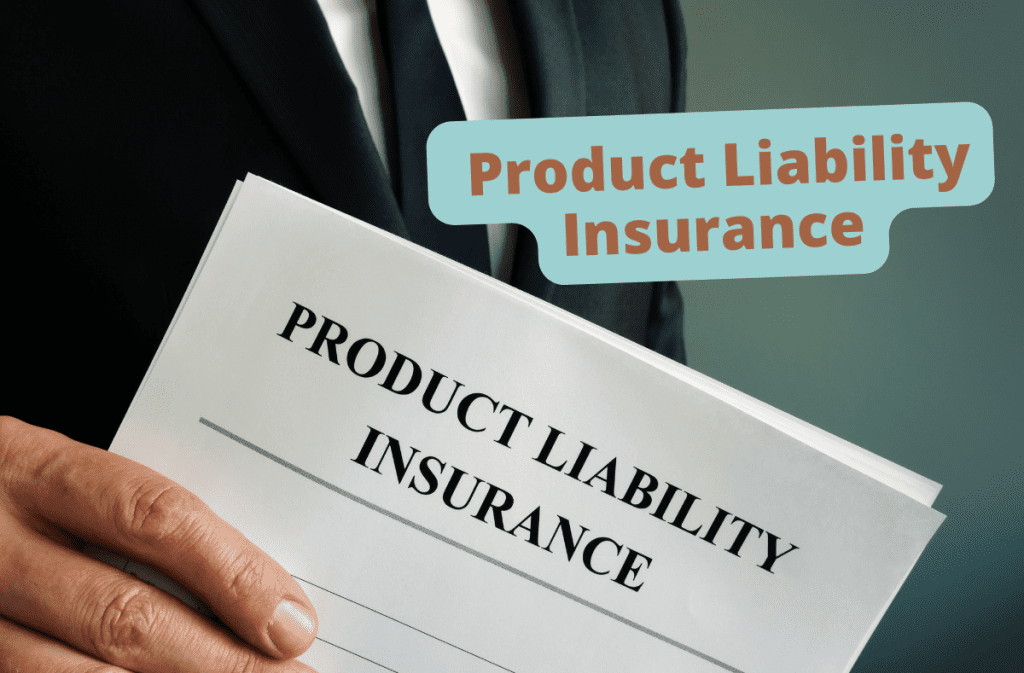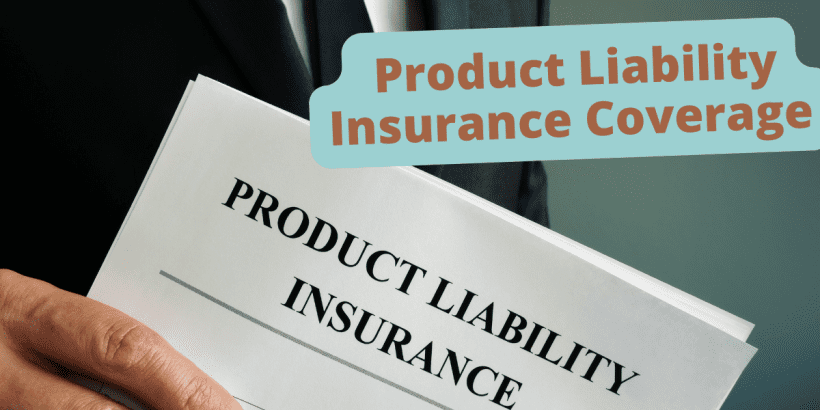Product Liability Insurance – How Can You Get Product Liability Insurance Coverage?
If your company creates, manufactures, distributes, or sells products, you may be held liable if the product causes harm to others.For example, if your company sells a defective tool that injures a customer, you could face a lawsuit.
Even if a customer misuses a product, your company could be held liable for any damage caused by the product.
Because of the potentially high cost of lawsuits, product liability insurance is an essential component of any small business insurance policy.
What Is the Definition of Product Liability Insurance?
Product liability insurance protects your company from claims that a product you sold, created, manufactured, or distributed was defective and caused bodily harm or property damage to someone else’s possessions.
Without product liability insurance coverage, your company may be forced to pay for medical expenses, property repairs, legal fees, and other expenses resulting from product defects.
What Is Product Liability Insurance?
Product liability insurance pays for legal fees, medical expenses, and compensatory damages in third-party lawsuits.It addresses issues caused by your product, such as:
- Property damage to someone else’s property
- Injuries to the body
- Illness
- Unjust death
Product liability insurance coverage covers the following types of defects:
- Design flaw:The product’s design contained an error.
- Manufacturing flaw:The product had a flaw in its manufacturing.
- Marketing flaw:The product’s marketing made a mistake, such as not providing adequate instructions.
- Inadequate forewarning:There isn’t enough information about how to use the product properly.
- Liability is strictly enforced:Even if your company is not found negligent, a customer is harmed by a product.
What Is Excluded In Product Liability Insurance Cover?
Product liability insurance protects against lawsuits resulting from physical harm caused by a product.
It is not intended to cover issues caused by software, apps, IT, or technical products.
Product liability insurance, for example, does not cover coding errors and software errors that cause financial harm to your customers.For technology-related issues, you’ll need errors and omissions insurance coverage.
Product liability coverage also excludes the following:
- Costs of product recall
- Injuries to employees
- Customer-involved accidents, such as slip-and-fall injuries
Who Should Get Product Liability Insurance?
If you sell a product, you should consider purchasing product liability insurance, especially given the prevalence of lawsuits these days.These companies frequently purchase product liability insurance:
- Distributors of Stores
- Manufacturers
- Amazon, eBay, and Etsy online sellers
- Shops that sell pet supplies
- Printing establishments
- Restaurants
- Wholesalers
A product liability insurance policy is also appropriate for a construction and contracting business because it provides financial protection in the event that a client sues over damage caused by the finished work.
For example, if a contractor installs a custom cabinet but the doors are faulty, product liability insurance may cover the cost of repairing the defect.
How Much Product Liability Coverage Do You Need?
According to Michelle Shaver, senior vice president of Chubb Small Commercial Insurance, “the product liability insurance coverage limit will vary depending on industry, location, annual revenue amount, and claims history.”
“It may be prudent to carry higher coverage limits if the products are more hazardous in nature or sold in a highly litigious geographic territory.”
According to Bryan Smith, vice president of product management at The Hartford, the amount of product liability insurance coverage should be proportionate to the expected liability exposures.
“The type and amount of product, the volume of sales, and the number of parties involved in the production and flow of commerce will all have an impact on a business’s insurance needs,” Smith says.

What Is the Cost of Product Liability Insurance?
According to Advisor Smith, the average cost of product liability insurance for small businesses is $1,192 per year.Your industry makes a difference when it comes to product liability premiums.As an example:
- The average premium for manufacturing businesses is $1,146 per year, with a range of $736 to $1,854.
- The average premium for general liability insurance that included product liability insurance coverage for wholesale businesses was $1,159.Premiums range between $751 and $2,431.
Other cost factors that influence the cost of product liability insurance are as follows:
- Your company’s location
- History of claims
- Policy limit or constraints
Insurance Cost Is affected or Influenced by Product Type
The type of product created, manufactured, or sold by your company has a significant impact on the cost of product liability insurance.The likelihood that a product will cause property damage or bodily harm varies.
Product liability insurance rates reflect this wide range of risks.
Premiums are lower for companies that sell safer products, such as office supplies and stationery.Furniture, electronics, and bicycles are examples of higher-risk products.Food and beverages, as well as products used by children, pose the greatest risk.These products will have some of the highest product liability insurance rates.
Product Liability Insurance for Amazon Sellers
Small businesses selling on Amazon can obtain product liability insurance through Amazon Insurance Accelerator, a digital network.
After making $10,000 in sales in one month, Amazon requires third-party sellers to purchase product liability insurance coverage.The Amazon Insurance Accelerator will assist small businesses in the United States in obtaining product liability insurance quotes from companies such as Chubb, Harborway, Hiscox, Liberty Mutual, Markel, and Travelers.
How to Find the Best Product Liability Insurance coverage
Product liability coverage can be purchased as part of a general liability insurance policy.
This basic level of product liability insurance may be sufficient for businesses with low product risk.
The second option is to purchase a product liability insurance policy on its own.
A standalone policy would be appropriate for a business that faces a high risk of product liability.
“Product liability insurance is frequently provided in conjunction with a general liability insurance policy.”
“It can also be sold as a stand-alone policy,” Smith of The Hartford says.
“Product liability insurance coverage protects a company from claims resulting from an actual or alleged defective product.”
“The product may be manufactured or sold by the company and cause bodily harm or property damage to a third party,” he says.
Advice and Tips on Purchasing Product Liability Insurance
Here’s what you should know before purchasing product liability insurance coverage.
Select the appropriate coverage limit:
“When purchasing product liability insurance, it is critical to choose the appropriate coverage limit as well as the appropriate coverage territory—the geographic area an insurance policy will cover,” says Shaver at Chubb.
“Having the right coverage limit will determine how much the insurance company will cover and how much the small business owner will have to pay from his pocket.
Understand your coverage area:
“The policy’s coverage territory can influence whether or not a claim is covered,” Shaver says.
“If the product can be used anywhere after it is manufactured, the small business should consider global coverage.”
The setting is important:
According to Shaver, if a product is manufactured or sold in a particularly litigious region, the company is more likely to be sued.
Keep contract requirements in mind:
According to Shaver, “some vendor contracts may require a small business to have specific coverage limits in place to cover any claims or losses for which they may be responsible.”
Other useful guides on how to find cheap insurance near you is here.

